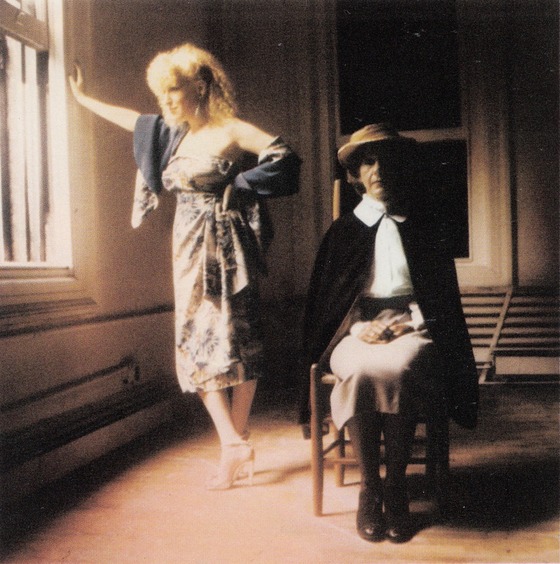(I think this scene is from a later tour of hers, but the Delores character and the harlettes were very present in the book.)
The book is full of wild prose and photos. For me it's one of those books you find on your parent's book shelf as a kid, and it shows you a part of the world you just have no idea about, and then lots of little tidbits just stick with you or generally inform your view on certain topics - for example, she signs a letter in it "Your everlovin' sometimes blondie" - I've always been awkward with signoffs on letters, so I stole that and devolved it into "Your Ever Lovin' Kirk" for emails to my mom during college days, and now I'm YELK and my mom and Aunt Susan are MELM and MELAS in our mutual correspondence and texting.
The passage I've been thinking of the most over the years is this, where she sneaks into a generally off-limits-room at a library in Hawaii when she is ten and finds a book that had been left out:
Of course, [The Decay of Lying] wasn't about telling falsehoods at all. It was by Oscar Wilde and it was really about masks and how the only interesting thing about someone is the mask he wears--not the "real" person behind the mask. The persona was what mattered, not the person. According to Wilde, all that someone had to do to be devastatingly exciting was to make up a fabulous mask.(She goes on to say "All I needed was a great persona, and that I could invent.)
I find the concept resonates with me, and my current view that it's mostly the interactions that matter - surface, not essence. (In this stance, the internal life only is interesting to the extent it informs what mask and set of interactions we undertake...)
Another passage from when she's in Paris shopping at Les Galeries, having tussled with the clerk about her French, and then checking if the basket she's trying to buy would fit on a boy's bike...
"Ah, mon Dieu! Boys' bikes! Girls' bikes! We have no such things here," he almost shouted. "Only in America do bicycles have gender. It's just another part of your obsession with sex."I think about this passage a lot. Having a mildly repressed childhood, I've always liked it when I see that frame erased a bit, where you can see a hint of a connection between normal commonplace life and sex - say, a preference for the stretchy cotton tanktop to the fancy black lingerie that declares "now we are in the time of sex"."Oh, really?" I said, incredulous that we were going at it again. "The French ain't exactly slouches in that area."
"Ah, but for us sex has always had its time and place. Lovemaking is an art and, like a great painting, should have a frame around it. You have lost that notion in America. It spills over into everything."
Also the book lists 4 of those great "I will never forget it" Soph and Ernie jokes, and I think it was where I first encountered Spring and Fall ("Margaret, are you grieving"...the first poem I remember calling a favorite poem.)
Other bits:
I'm as confident as Cleopatra's pussy(The hypothetical interviewer claims that this is either a way for Miss M to hide her true feelings, or maybe just a total disregard for the simplest rules of civilized conversation.)
She quotes from what turns out to be Tom Waits' song "Shiver Me Timbers" (a piece Midler covered) - ... I really like this cover by Katie Ferrara On an anecdote that had a woman planning to name a line of pro-woman diapragms and douches after Dido the queen:
Somewhere in the back of my mind I seemed to recall that Dido killed herself unloved and untouched, but I thought it best not to mention that to Cecily.
Being moral isn't what you do, I have often tried to tell her, it's what you mean to do. And, naturally, I always mean the best.
Hitler had only one big ball.
Goering had two, but they were small.
Himmler had something sim'lar,
But Goebbels
Had no balls
At all!
"I don't take anything. I'm high on life."
"Where can I get some?"
Death is to the dead as life is to the living.Finally she signs off:
You know, I wanted to leave you with the memory of the good beneath the gaudy, the saint beneath the paint, the pure little soul that lurks beneath this lurid exterior . . . but then again I figured:Fuck 'em if they can't take a joke!

Bette Midler and Fran Frank, her dresser, portrayed in the book as a uptight and Boston-y.
Love is like a flower bending towards the light: stupid
